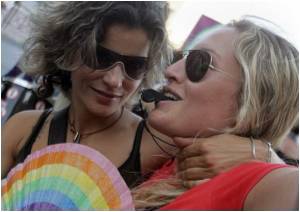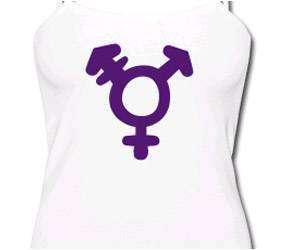
Titled, "Formal Rights and Informal Privileges for Same-Sex Couples: Evidence from a National Survey Experiment," the study, which appears in the December issue of the American Sociological Review, relies on a nationally representative dataset of more than 1,000 people.
As part of their research, Doan and his co-authors Annalise Loehr and Lisa R. Miller, who are also PhD candidates in Indiana University's sociology department, provided study participants with one of three scenarios featuring an unmarried couple who was currently cohabitating. The only difference between the scenarios was the sexual identity of the couple: gay, lesbian, or heterosexual. After reading their scenario, respondents were asked to answer questions about their perceptions of the couple. These questions included whether the couple should be granted legal benefits such as family leave, hospital visitation, inheritance rights, and health insurance. Other questions focused on the acceptability of the couple engaging in various forms of PDA, including telling others they are in a relationship as well as holding hands, kissing on the cheek, and French kissing in a park.
Among heterosexual respondents, the researchers found, for example, that 70 percent of those who received the scenario about the heterosexual couple supported inheritance rights for the couple, 69 percent of those who received the scenario about the gay couple supported inheritance rights for the couple, and 73 percent of those who received the scenario about the lesbian couple supported inheritance rights for the couple.
However, among heterosexual respondents, 95 percent of those who received the scenario about the heterosexual couple approved of the couple kissing on the cheek, 55 percent of those who received the scenario about the gay couple approved of the couple kissing on the cheek, and 72 percent of those who received the scenario about the lesbian couple approved of the couple kissing on the cheek.
"Support for legal benefits for gays and lesbians should not be conflated with favorable attitudes toward same-sex couples in general," Doan said. "We come to the conclusion that although heterosexuals may be increasingly willing to grant legal benefits to gay and lesbian couples, entrenched prejudice that takes on subtler forms may remain."
Interestingly, the researchers also found that, in some cases, gays and lesbians are less supportive of same-sex couples engaging in PDA than they are of heterosexual couples partaking in the same behavior.
"This was the most surprising finding in our study," Doan said. "Initially, it was counterintuitive because we expected gay and lesbian individuals to espouse egalitarian ideas about same-sex couples' right to express affection in public. However, we believe that gay and lesbian people were less likely to approve of certain same-sex public displays of affection due to safety concerns. Indeed, gay and lesbian individuals are all too aware that same-sex individuals are vulnerable to harassment and hate crimes."
Source-Eurekalert









